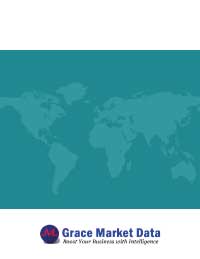Global paper machine clothing (PMC) market will reach $3.42 billion by 2033, growing by 3.9% annually over 2023-2033. The growth is driven by the increasing demand for paper and paper-based products across various industries, technological advancements in the papermaking process, the introduction of innovative materials for PMC, and the shift towards sustainability.
Highlighted with 82 tables and 82 figures, this 175-page report “Global Paper Machine Clothing (PMC) Market 2023-2033 by Product Type (Forming Fabrics, Press Felts, Dryer Fabrics), Material (Nylon, Polyester, PVDF, Others), Application (Wrapping & Packaging Paper, Printing & Writing Paper, Household & Sanitary Paper, Newsprint, Others), and Region: Trend Forecast and Growth Opportunity” is based on comprehensive research of the entire global paper machine clothing (PMC) market and all its sub-segments through extensively detailed classifications. Profound analysis and assessment are generated from premium primary and secondary information sources with inputs derived from industry professionals across the value chain. The report is based on studies on 2021-2023 and provides forecast from 2024 till 2033 with 2023 as the base year. (Please note: The report will be updated before delivery so that the latest historical year is the base year, and the forecast covers at least 5 years over the base year.)
In-depth qualitative analyses include identification and investigation of the following aspects:
- Market Structure
- Growth Drivers
- Restraints and Challenges
- Emerging Product Trends & Market Opportunities
- Porter’s Fiver Forces
The trend and outlook of global market is forecast in optimistic, balanced, and conservative view by taking into account of COVID-19 and Russia-Ukraine conflict. The balanced (most likely) projection is used to quantify global paper machine clothing (PMC) market in every aspect of the classification from perspectives of Product Type, Material, Application, and Region.
Based on Product Type, the global market is segmented into the following sub-markets with annual revenue ($ mn) for 2023-2033 included in each section.
- Forming Fabrics
- Press Felts
- Dryer Fabrics
Based on Material, the global market is segmented into the following sub-markets with annual revenue ($ mn) for 2023-2033 included in each section.
- Nylon
- Polyester
- PVDF
- Other Materials
By Application, the global market is segmented into the following sub-markets with annual revenue ($ mn) for 2023-2033 included in each section.
- Wrapping & Packaging Paper
- Printing & Writing Paper
- Household & Sanitary Paper
- Newsprint
- Other Applications
Geographically, the following regions together with the listed national/local markets are fully investigated:
- North America (U.S., Canada, and Mexico)
- Europe (Germany, UK, France, Spain, Italy, Netherlands, Rest of Europe; Rest of Europe is further segmented into Russia, Switzerland, Poland, Sweden, Belgium, Austria, Ireland, Norway, Denmark, and Finland)
- APAC (Japan, China, South Korea, Australia, India, and Rest of APAC; Rest of APAC is further segmented into Malaysia, Singapore, Indonesia, Thailand, New Zealand, Vietnam, Taiwan, and Philippines)
- South America (Brazil, Chile, Argentina, Rest of South America)
- MEA (UAE, Saudi Arabia, South Africa, and Rest of MEA)
For each region and country, detailed analysis and annual revenue ($ mn) are available for 2023-2033. The breakdown of all regional markets by country and the breakdown of each national market by Product Type, Material, and Application over the forecast years are also included.
The report also covers the current competitive scenario and the predicted trend; and profiles key vendors including market leaders and important emerging players.
Selected Key Players:
Albany International
ANDRITZ AG
AstenJohnson
Benost
Cristini S.p.A.
DuPont
Filcon Fabrics
Heimbach
ICHIKAWA
J?rgens Holding
Monosuisse
Nippon Filcon
Perlon Nextrusion Monofil
Sichuan Vanov
Valmet
Voith Paper Fabrics India
Xerium Technologies
(Please note: The report will be updated before delivery so that the latest historical year is the base year, and the forecast covers at least 5 years over the base year.)



